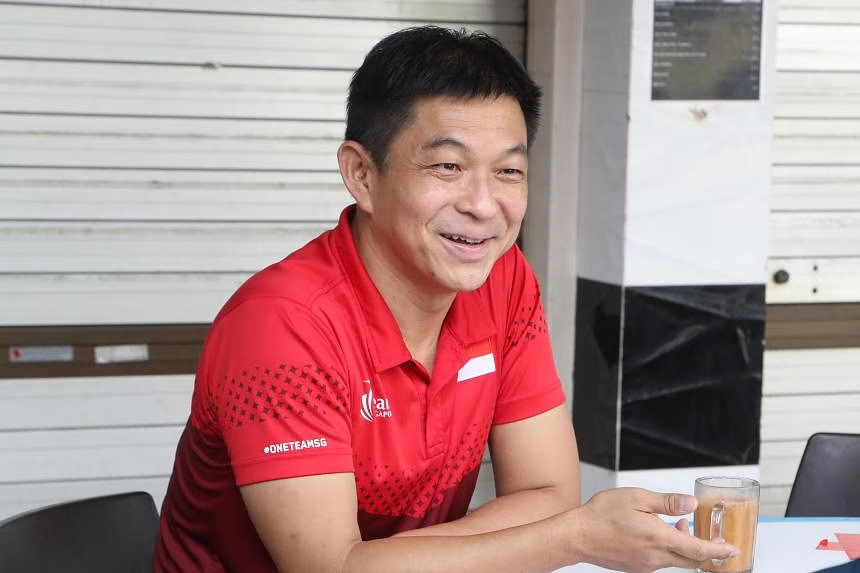Growing your Tree of Prosperity is an introductory investment guide written specifically for Singaporeans who wish to take their first step towards financial independence.
Saturday, July 29, 2023
There's value in doing nothing
Monday, July 24, 2023
What's your next career move : Corsair or Eunuch ?
Thursday, July 20, 2023
What lessons the current affairs hold for BBFAs.
A poet pal credits the idea that the 50s is a particular time men are very vulnerable to adultery and marriage breakdown because their wealth and power peak while their health and virility have still not begun their decline. I only partially agree with this analysis, because a day later, we're treated to a presidential candidate in his 70s with a fiancee that is younger than his elder son.
I would argue that sexual attractiveness monotonically increases with wealth and power and it is not something that can be stopped by waning health, marriage quality, or even andropause.
BBFAs who are not getting anywhere in the mating game can just focus on their wealth and power until they eventually find someone. If my analysis is correct, there is no real need to experience any angst over a guy's singlehood.
Single men do not exist, they are just men whose wealth and power have yet to arrive. I hope this can motivate BBFAs to be empowered in their investment journey.
b) Marriage happens because of constraints on female fertility.
If men just keep getting better all thanks to compound interest and time, then why does marriage happen at all?
Simple. Women need to get married because their fertility is constrained by time. I should casually remind readers that one of the fiercest advocates of egg freezing is Cheng Li Hui.
Modern marriage happens when men are not at their peak yet and women have time constraints. That's not even enough - the government MUST toss in the BTO benefit to make marriage even viable. Will men throw their freedom away knowing that their bargaining chip gets better with time? Why should women bet on men whose real economic power has not been realised yet?
HDB and the BTO system must be the answer. If you marry at the right time and produce future taxpayers, the government can grease your palm with over $300k-$800k of real estate appreciation.
This is how the Singapore Dream can continue to incorporate marriage and procreation.
With this realisation, I'm no longer so eager to offer housing options to singles because bachelorhood really needs more nerfing.
c) Serial polygamy will keep happening in the Singapore political scene because of later peaks in male power.
In modern societies, polygamy is illegal, but powerful can skirt the law with serial polygamy - the art of having sequentially different spouses over different ages of their life!
Another interpretation of what everyone is seeing in politics is the reality of serial polygamy in Singapore society.
As male power peaks at a later age, you find that men find alternatives to enact their personal dream of polygamy. One avenue is through adultery and divorce. The other is through longevity.
Tongues were wagging when Ng Kok Song's fiancee is 30 years younger than him, but I find it touching that he was loyal to his wife all the way until her last day on earth. Of course, he is great marriage material!
d) Serial polygamy is also enabled by women!
Women are wired to be choosier when picking a mate. This is because they are designed for higher parental investment.
So it comes as no surprise that a lot of attractive and smart women will hold out until they find a guy worthy of them. What is the use of having ten thousand Simps, when you can get half a slice of a billionaire? They also know that male power peaks very late and sometimes a divorce or a death can make a powerful alpha available again.
In modern societies where marriage is weak, supported by a housing policy, then even marriage itself is not a powerful fortress to defend a family.
The power of True Love is something that even a Prime Minister cannot stop.
As such, my suggestion to BBFAs males does not really change.
Continue to invest in yourself and build up your assets. We've witnessed the sheer power of an alpha male who can manage money well and I think we can learn from that. It's fine if you don't join an investment course, attempt the CFA exams to sharpen your mind. Maybe the CFA rebrand itself as the Tongkat Ali of your mind, but I think they really need to lower their passing rates.
Do not be discouraged by your lack of success on Tinder. If the only people you meet on Tinder are ugly people or financial advisors, understand that Tinder provides an advantage for beautiful people. Caring or humourous males should not have any business trying their luck there.
Your Tinder should be the Sunday or Business Times, get yourself launching your startup or IPO there and you can still score someone soon enough.
In the meantime, keep playing Diablo IV and using your dividends to offset your monthly data bills!
Tuesday, July 18, 2023
Thoughts on charismatic men.
Friday, July 14, 2023
Who would have your back, a Skrull or a commissioned FA?
Monday, July 03, 2023
Are Singapore properties becoming hot potato investments ?





